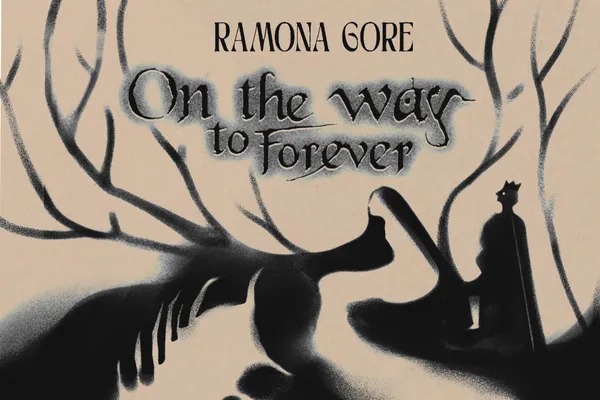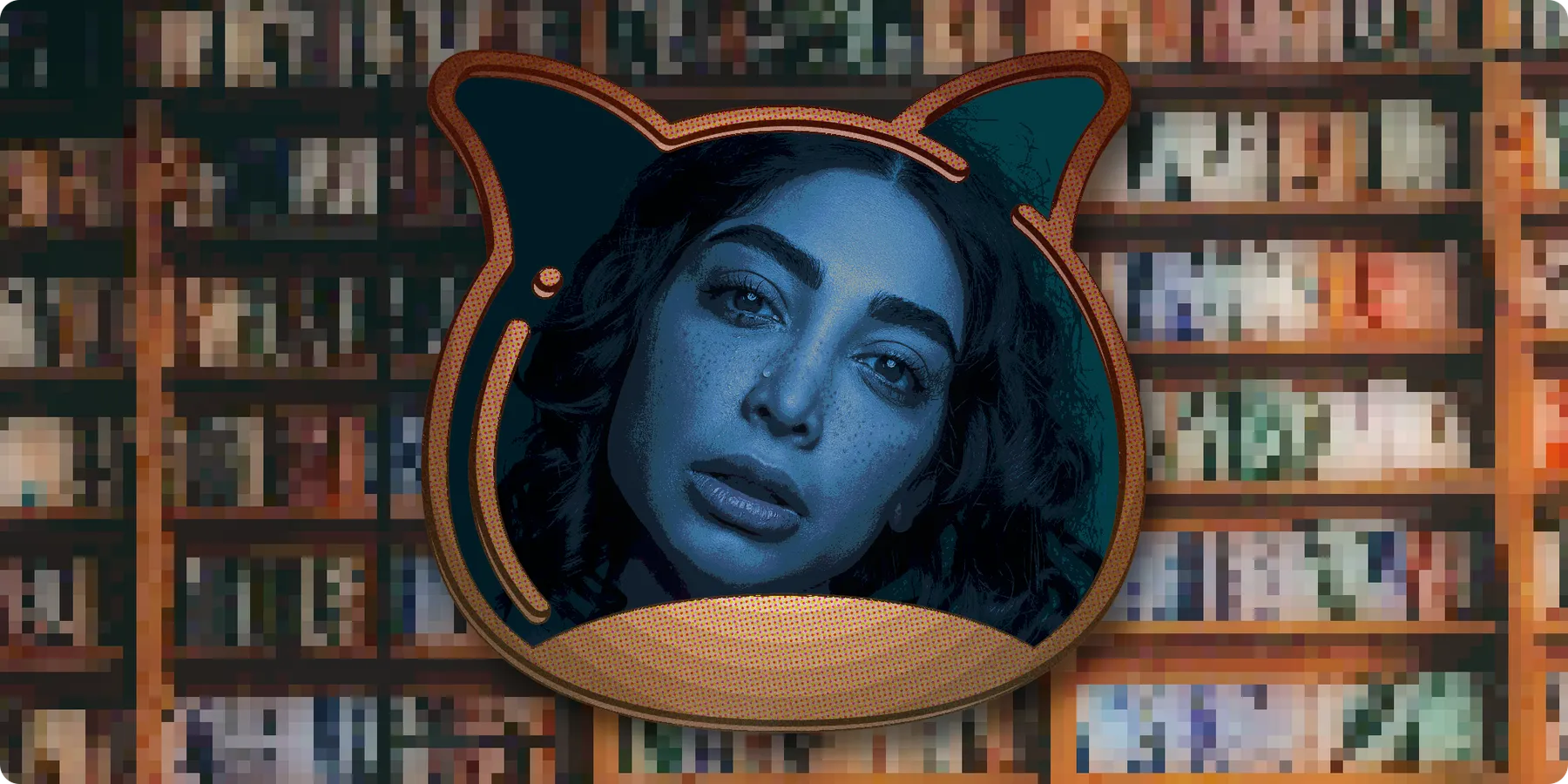
🪱 On the way to forever
by Ramona Gore
healing tears


Find out in the laugh out loud novel by L.N. Hunter, available wherever books are sold.
As Marina sat across from a diagram of women’s reproductive organs at Brigham Women’s, she wondered if she’d have a heart attack while waiting for the doctor to return with her results. Not because she was stressed about the results, no, but because, in general, hospital rooms triggered a wave of anxiety that started in her belly and tripped up into her fingers. There was no one to blame for that and she’d been working on it, but, like her ab workouts and regular meditation practice, it was an inconsistent work in progress. She wondered, briefly, if having a heart attack here—if she were to have one—was safer than having one outside a hospital room? Convenient, perhaps, but only if they found her in time. At home, her chances would be lower since Spoons couldn’t dial the phone and there were all those news reports about cats eating the faces of their dead owners. Not helpful at all but definitely resourceful. Panic crested and broke like a wave of dew across her palms and she blinked hard. Forced herself into the exercise her therapist taught her earlier that week.
Five things she could see: an ear-scope; an unused swab, still in its wrapping; peach skin, hers, reflecting from the metal sink; the engine red box where they disposed of used syringes; and the back of the room door that hadn’t opened since they’d taken the sample, over an hour ago.
Four things she could touch: the humid leather not covered by wax paper; her consignment store jeans; the hard gel of her manicure; and the necklace with a missing emerald that tapped against her chest.
She couldn’t hear anything except her breathing and focusing on that started the wave of panic again in the first place, so she moved on. This sort of coping was always done in order, but skipping steps could help, she found, more often than not. It kept her away from a focused perfection.
So, she continued on….
Two things she could smell: someone’s lunch, likely meatballs and a rich tomato; and her own woody perfume mixed with coconut deodorant.
One thing she could taste: the hollow remnants of her iced coffee, bitter and clouded in her mask. Tinged with salt.
If they had her cry instead of doing the extraction, maybe she could have explained the salt better, unless they hit something and now her tear duct was leaking down her sinus onto her tongue. She wondered, briefly, if they’d broken something in her.a The patter of panic returned.
Breath in it. Breath through it.
This test had been kinder to her than the other; no drills or long blood draws or topical anesthetic that did nothing, but make her skin feel gummy and loose. It was still uncomfortable: a thin needle inserted into a tear duct to extract a small piece of white and pink tissue. She watched as they removed it and tapped it into a metal dish the shape of an amoeba. She would have rather cried into a cup—she cried so easily now—but she supposed the doctors had to be sure.
Her skin prickled from the cool air blowing in from the vent above her. She didn’t shiver, just watched the goosebumps pucker down her bicep.
A gentle knock, an opening door, and the doctor ducked as they entered even though there was no need; their height bore no threat to the entranceway. Maybe, Marina wondered, they were waiting for some sort of karma to reign down upon them.
“Ms. Simbowick.” It was like they needed a reintroduction, given the time lapse. “We have some good news.”
Marina felt her diaphragm rise, her gown expanding and uncreasing. After she’d lost Tallulah, she signed up for every medical study she had a chance at qualifying for:. the poop one; the alcohol one; the sleep one; and the menstrual cramps one. She donated blood four times a year and plasma, twice a year. She worked her schedule around the tests, studies, and donations, used her vacation time for it. She put herself on the kidney donor list as well.
No one wanted her, but that didn’t mean she couldn’t try.
The doctor sat down on the circular stool and wheeled closer so Marina could see the top of their head. A small pink spot on the crown glistened just below their black follicles. They clasped their hands.
“It looks like you’ve got the combination we’re looking for in the clinical trial,” they said. “You could help a lot of people.”
A lot of people.
She would have settled for just one. A specific one, the one she’d carried alongside her organs. The one she knew best and for the shortest amount of time. It was so strange to produce something from yourself that didn’t match anything you had. An imposter, a foundling, but she wasn’t sure if she thought this about Tallulah or herself.
The doctor explained the effects of postpartum depression, which, of course, she, like many, were intimately familiar with. How this hospital was on the forefront of new and experimental treatment options from generations of women who had coped.
Coped, a strange word. She wasn’t sure they’d see it that way. Survived, perhaps. But even that didn’t feel right.
My life, she thought with grandeur and a huge dose of regret, has led to this moment. She wished it had been a different one.
She wished.
“You have just the right combination of emotional variance, genes, and lived experience,” the doctor said. A code for hope and tragedy, for optimism and loss, for polar opposites coupled and pinned tightly together, so much so it had changed her DNA. Bled out in her lost saline.
“We won’t use the biopsy process for donation,” the doctor said. “We’ll just need your tears. Have you come in twice a month to start, if you can.”
They extended a small plastic cup, not unlike a urine test or a sperm donation, only one of which she’d performed. She’d benefited, briefly, from the latter, if she could call it that.
Oh Tallulah, she thought to herself. The words meant almost nothing now, said like a prayer, a closing amen, or a hard stop.
“I’ll leave you here for the first sample,” they said. “Once you’re done, just cap the bottle and bring it to the front desk. We’ll schedule your next appointment from there.”
She wondered if the women she’d help would drink her tears like sailors after meeting a Selkie, seal-skinned and dual-natured, full of hope and downfall. Or perhaps, the scientists would dry out her tears and mix the remnants with collagen for morning coffee or earl grey. Or maybe they’d pop it in a vein like an IV with electrolytes.
She wondered what would happen if she took the supplement. If it would help her forget her own pain. Her heart squeezed at that, the way the doctor looked in her eyes—filled with hope—then left the plastic cup in her hand. She’d forgotten to ask if she should think about something as she cried, if that changed what the tears would do. She looked back at the diagram in front of her, the fallopian tubes, the cervix. Felt the blood and fluids in her body circulate out of time.
With the cup in her hands, she curled over the rim and thought of baby rabbits hopping in her driveway. Of the ending line of a favorite book. Of a dog returned home. Of a hospital room, not unlike this one, with her child in her arms. Of the soft slowing of breath.
I’m too late, she thought, but for what, she wasn’t sure. She’d been late for everything that had come before.
And finally she cried, the tears slipping like oil down a sealskin coat, for a beginning that was also an end.